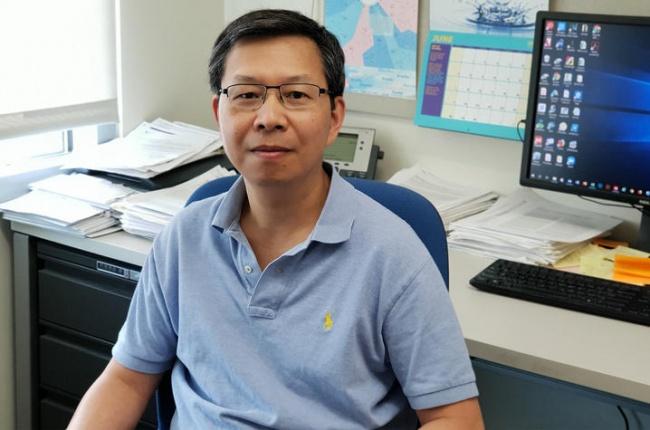Research Led by KL2 Scholar Provides Insight on Colorectal Cancer Growth

LEXINGTON, Ky. (July 14, 2020) — A new study by researchers at the University of Kentucky identifies a novel function of the enzyme spermine synthase (SMS) to facilitate colorectal cancer growth.
SMS is an enzyme that produces spermine from spermidine, which has been shown to be important for cell growth. However, excessive accumulation of spermidine can have harmful effects on cell viability. How cancer cells maintain a relatively high level of spermidine but below the toxic threshold to facilitate tumor growth is not well understood.
The group led by the Markey Cancer Center researcher Qing-Bai She, a professor in the UK College of Medicine’s Department of Pharmacology and Nutritional Sciences and former CCTS KL2 Scholar, discovered that SMS is overexpressed in colorectal cancers and plays an important role in balancing cellular spermidine levels that are a necessary adaptation for colorectal cancer growth.
The group further revealed a link between the signaling of SMS and the oncogene MYC, a gene that plays a role in many cancer types, to maintain colorectal cancer cell survival. The study showed that combined inhibition of SMS and MYC signaling induced cancer cell death and tumor regression, which could be a promising strategy for colorectal cancer therapy.
“Our findings provide an in-depth understanding of how the polyamine metabolic pathway interacts with oncogenic signaling pathways in tumorigenesis and highlight the unmet need of clinically effective SMS inhibitors for the targeted therapy,” said She.
The findings were published on June 26, 2020 in Nature Communications.
This work was supported, in part, by funding from the National Cancer Institute, the National Institute of General Medical Sciences, the UK Markey Cancer Center, and the UK Center for Clinical and Translational Sciences KL2 Program. Researchers from the Southern Medical University and the Greenwood Genetic Center collaborated with UK scientists in this study.